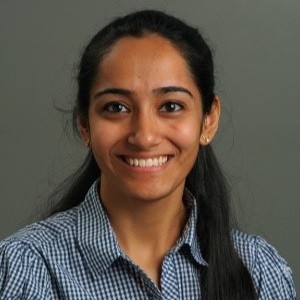
Krithika Ramachandran
Scientist and Clinical Research Coordinator
Dr. Krithika Ramachandran received her bachelor’s degree in Genetic Engineering from SRM University, where during her final year she was selected for a semester abroad program and worked on her bachelor’s thesis at Harvard Medical School. After completing her under-graduation, she continued her work at Harvard for a year on identifying diagnostic biomarkers for acute kidney injury. Following this fruitful experience, she pursued her PhD at Northwestern University.
Having a strong interest in translational research, Krithika joined Dr. Grant Barish’s lab at the Department of Endocrinology and worked on understanding the genomic basis for skeletal muscle plasticity. Her thesis was a combination of two independent projects, one where she performed an unbiased genomic and transcriptomic analysis of the mouse enhancer landscape and established how this gets altered by exercise. The other targeted project was on understanding the role of a transcription factor, BCL6, in skeletal muscle mass maintenance and metabolism. She completed her PhD in March 2020 and wanted to further understand how exercise not only changes the muscle but has wide-spread effects on the whole body. With this research goal, she started a postdoctoral fellowship in Dr. Laurie Goodyear’s lab at the Joslin Diabetes Center, Harvard Medical School and worked on understanding the mechanisms by which beneficial effects of maternal exercise are passed down to the offspring. Following her postdoctoral fellowship, she returned to India as an Assistant Professor in the Division of Medical Research, SRM Medical College where she collaborated with doctors, medical students, and research scientists to focus on clinical and translational research, with a focus on metabolism. Throughout her research journey, she has been interested in translational research and hence she was excited to join CHINTA as a clinical research coordinator in Jan 2024, where her primary role is to bridge the gap between clinicians and basic neuroscience researchers. Further, based on the guidance from Indian neurologists and neurosurgeons, the clinical research at CHINTA will focus on the health problems that are specific to the Indian population. Along with clinical research coordination, she will also pursue independent research projects to understand the genomic and epigenomic mechanisms underlying neurodevelopmental and neurodegenerative disorders and how exercise can reverse these alterations.